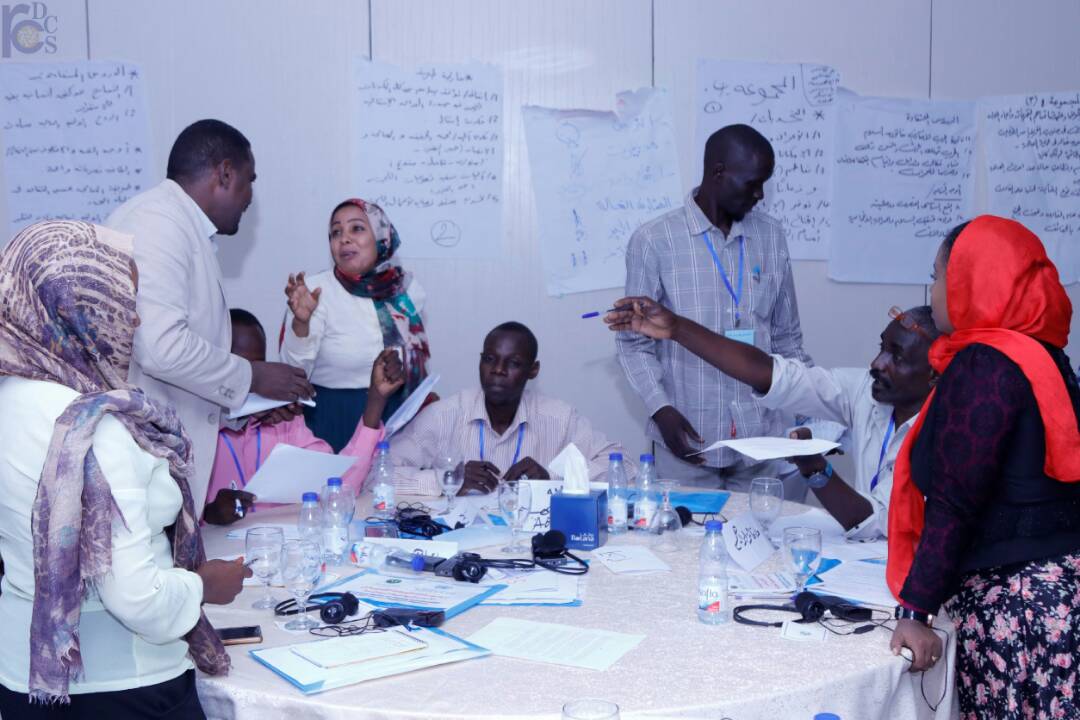Sudan has long been beset by conflict. Civil war pitted the north against the south for decades until 2005. In spite of the combined efforts of the African Union and the United Nations, the conflict that broke out in 2011 in the Two Areas of South Kordofan and Blue Nile States is yet to be resolved, and the peace process in Darfur remains stalled. The National Dialogue concluded in October 2016 discussed some of the underlying causes of instability of Sudan, which include governance issues and perceptions of marginalization by the country’s peripheries, but was marred by the absence of opposition parties and armed groups that boycotted the process, citing the lack of a conducive environment for inclusive discussions. Soon, a new generation of Sudanese political leaders will be called to address these complex challenges, which can only be resolved politically trough an inclusive process. Knowledge of best practices and lessons learned could enhance participation of young leaders in decision-making processes within political parties and governance structures and strengthen their capacities to address root causes of conflicts and steadily assume greater responsibility.
It was with these considerations in mind that DPA launched its first training for young political leaders in Sudan, held from 20 to 24 August in Khartoum. Over 40 young people, including 17 women, representing 35 political parties – the opposition included — took part in the workshop, which was organized in cooperation with the UN Resident Coordinator in Sudan, Marta Ruedas, and the President of the Sudanese Political Parties Affairs Council (an independent body affiliated with the Presidency), Ambassador Osman Mohammed Musa. In the wake of the innovative meeting, we spoke to the head of DPA’s Africa I Division, Graham Maitland, about its potential significance for fostering sustainable peace in Sudan.
Politically Speaking: What was the idea behind the workshop?
Graham Maitland: The workshop aimed at equipping young Sudanese leaders with the necessary skills to deal with political challenges facing Sudan. Participants were presented with a range of best practices and lessons learned from other countries on nation-building, power- and wealth-sharing, constitution-building and conflict resolution. They also learned about successful and unsuccessful experiences in managing diversity and fostering inclusivity elsewhere in the world, with particular reference to the gender dimension. The objective was to expand their horizons beyond the polarized political discourse in Sudan and foster creative thinking to broaden the options on the table.
PS: How do you assess the meeting?
The feedback we received was overwhelmingly positive. Government authorities conveyed their appreciation to DPA and the Resident Coordinator’s Office for the initiative and expressed interest in further training in the future. Most opposition parties also welcomed the initiative. Meanwhile, most participants said that they were able to transcend antagonistic politics during the workshop and focus on what constructive citizenship truly meant. Many said that the training helped enhance a culture of dialogue among political parties on critical issues for Sudan’s future. By improving their understanding of the factors leading to successful or unsuccessful efforts to address peace challenges in other countries, participants said that the training helped them put challenges facing Sudan into perspective, overcome stiff bargaining positions and strengthen their capacity to develop sound policy recommendations on the topics discussed. I think this is very encouraging.
PS: To what do you attribute the success of the training?
I think that’s down to a combination of factors. The support and trust demonstrated by the Government during preparations was essential, as was the partnership with the Political Parties Affairs Council. Leveraging the wealth of knowledge and wide spectrum of views available in Sudan has been critical to ensuring inclusive national ownership of the event. Almost all resource persons were high-caliber Sudanese experts, as was the NGO that facilitated the discussions, the Regional Center for Training and Development of Civil Society, which was instrumental in fostering a climate of openness. This helped in having a free-flowing discussion in spite of the political differences among participants. Most importantly, all participants across the political spectrum approached the training with a spirit of learning and enthusiasm to engage in a meaningful intergenerational, inter-party, and intercultural conversation on peace, which created the conditions for common understanding and respect. As to what this means for the future, I believe that as Sudan continues to work towards strengthening relations with the international community, we saw a a potential new generation of leaders that is eager to contribute to the global debate on peace and security, showing strong commitment to take on their national responsibility to sustain peace in Sudan and internationally.
